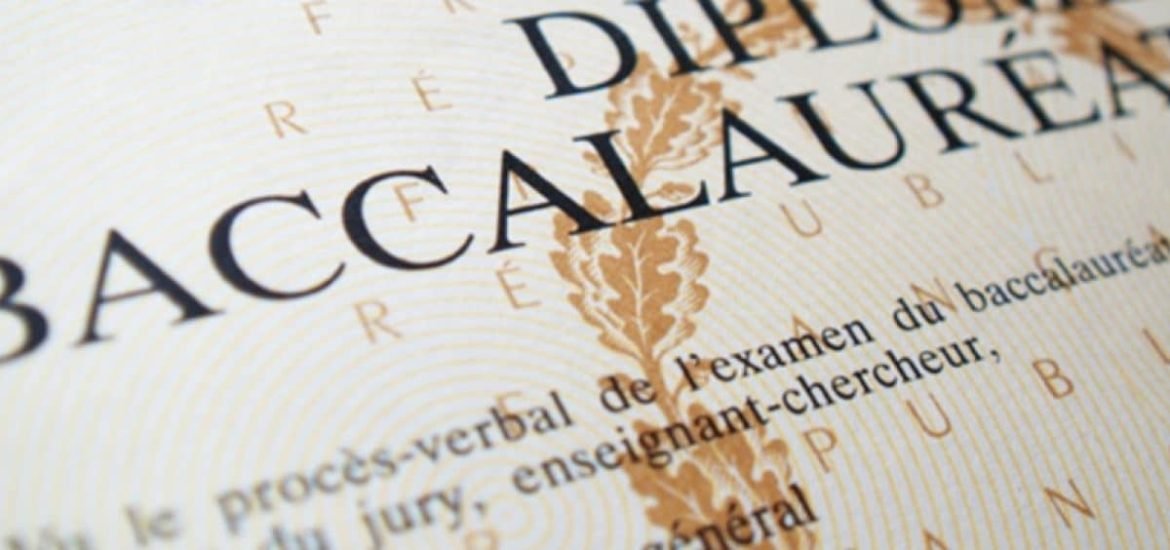
Over 85,000 French people have signed an online petition called Bac S : c’était quoi ce sujet de math 2018 ? (Filière S) [“Bac S : What was this maths subject about?” relating to a science-based secondary level exam course]; in Germany, 19,000 signatories for Mathe Abitur 2018 NRW zu wenig Zeit [ “NRW Maths exam, not enough time”]…. It looks like a new hardy perennial of the press silly season is taking root. At the end of the school year, some young Europeans now seem to be in the habit of taking to the Internet to complain after their exams. Too difficult, not enough time, impossible to solve, unexpected…. the reasons given are manifold. As a journalist from the French newspaper Le Monde reminds us, these petitions are launched every year even though they don’t result in any success. change.org however does not have the monopoly on social media for these types of recrimination. Indeed, as we see in The Guardian, a maths topic deemed unfair by candidates for the General Certificate of Secondary Education generated a twitter thread where students, despite their disappointment, were quick to resort to humorous memes.

Far from being limited to mathematics, this phenomenon affects all subjects and seems to really be cropping up year after year now. An article from Le Monde in 2017 mentions a petition calling for “harmonisation of marks” of the physics and chemistry exam of the Bac S 2017 organised in numerous French high schools abroad which attracted over 5000 signatories complaining about an impossible subject. This petition was virtually a word for word copy of a text from 2016 expressing the same request and which was signed over 11,000 times.
However, it would be wrong to believe that candidates’ agitprop only came about with the birth of online petition sites. In fact, in May 68 in France, following demonstrations by high school students, the Minister of Education resigned and his successor confirmed the oral baccalaureate exam. Teachers would rely on the students’ school report, which gave a success rate of 81.3%, a big increase on the previous year, when the rate was only 62%. However, it is clear from media analysis that the use of petitions is becoming almost a conditioned reflex of high school students.
Does it follow from this that it is young people’s familiarity with social media and a general tendency to use the web as a tool for protest that is leading to the growth of this phenomenon?
Or is it rather the case that these types of examinations which are used to determine university admission (Abitur, A-level, Diploma, Baccalauréat, Bachiller, Matura….) are no longer fit for purpose? In a country like Belgium, for example, which has promoted continuous testing, students do not seem so prone to resort to this kind of ritual response.
One may well think that the students who are protesting have excellent reasons to do so, and one could equally well imagine that they might flourish elsewhere. Getting to the heart of this problem, we are faced with this question: when the day comes that these young people, once in their professional careers, are faced with a problem, whether it be scientific, technical or anything else, we suspect that they will not go tweeting or filing online petitions for help. Admittedly, examinations and entry processes are not designed to reveal genius, but it is difficult to imagine Einstein filing a petition on change.org to help him demonstrate special relativity, or Marie Curie doing it in the interests of discovering Polonium. This reductio ad absurdum shows us why competence cannot and can never result from a militant act. In this case, it would perhaps seem wise to reflect on education in general and find alternative solutions to these examinations which are resulting in more and more dissatisfied young people and a disgruntled generation who seem blame society for the injustices they are being subjected to. A country like Switzerland offers interesting solutions in this respect. In his book “Formation, l’Autre Miracle Suisse”, [“Training, the Other Swiss Miracle”] the writer and historian François Garçon studies an atypical model that has a baccalaureate rate below the European average (around 60%): “In 2012, 33% of young people obtained a maturité certificate in Switzerland – equivalent to the Baccalauréat or A levels. With a low rate of “maturité gymnasiale” [school leaving certificates], even spectacularly low if only advanced certificates are taken into account (20%), this astonishing Swiss low-water level compares with Germany (33.9%), or with the percentage of young French people in their cohort obtaining the baccalaureate (71.6% in 2011)” Questioning this model, the author concludes “How can you explain this low peak effect which the mere trickle of passes of the “maturité gymnasiale” (the equivalent of the general baccalaureate) demonstrates, passed by only one in five young people? Unless we believe the Swiss youth are less able to study than their Italian or French neighbours, we will first deduce that the hurdles to achieving the equivalent qualifications to the Swiss maturité must be lower in the countries mentioned and, above all, that the alternative offered in Switzerland, the dual apprenticeship system, appeals to the vast majority of young people who prefer it.”
At any rate, the resurgence of post-exam viral activism is a sign of something not being right. The national education systems of the European countries witnessing this phenomenon, which recurs every year and continues to grow, should take this opportunity to rethink their education policies, rather than allowing education to become a pure political demand.
This post is also available in: FR (FR)